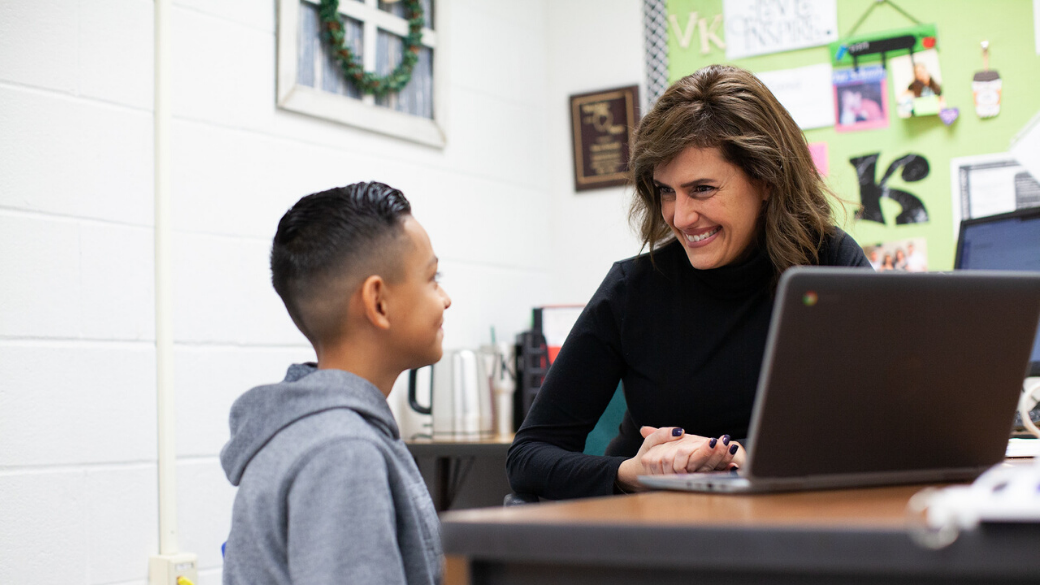How Mentor Check-ins Work
Students meet weekly with their teacher-mentors to discuss their progress at school. Each mentoring session has a discussion guide that students use to prepare for the conversation. By building a deep connection and foundation of trust, mentors have honest discussions about struggles and successes with students. During each meeting, students reflect on what went well — and what didn't — during the previous week, and mentors share useful feedback and suggestions for refining an existing goal or setting a new one based on recent experiences. As a student becomes more familiar with goal-setting and planning, they also learn which tasks they should focus on every week.
Mentors also provide support to students while they practice important learning skills. They do this by helping students deal with stress in positive ways, exploring post-graduation options, coaching students on the Habits of Success — social and emotional skills that enable students to be successful at both academic and non-academic pursuits — and more. Mentors are a key part of Summit Learning because they help students learn to succeed on their own.

